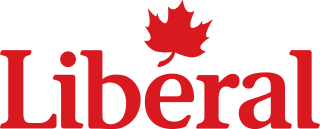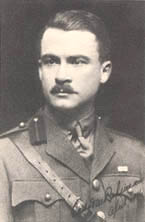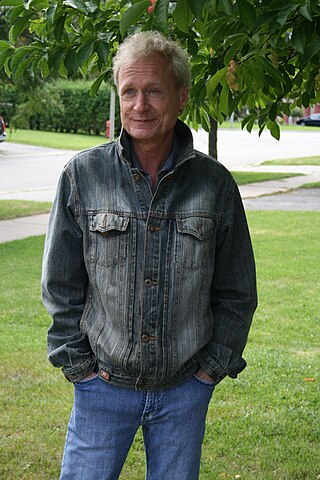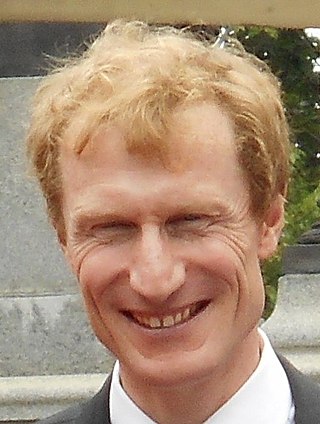
Joseph Philippe Pierre Yves Elliott Trudeau was a Canadian lawyer and politician who served as the 15th prime minister of Canada from 1968 to 1979 and from 1980 to 1984. He also briefly served as the leader of the Opposition from 1979 to 1980.

The Liberal Party of Canada is a federal political party in Canada. The party espouses the principles of liberalism, and generally sits at the centre to centre-left of the Canadian political spectrum, with their main rival, the Conservative Party, positioned to their right and the New Democratic Party positioned to their left. The party is described as "big tent", practising "brokerage politics", attracting support from a broad spectrum of voters. The Liberal Party is the longest-serving and oldest active federal political party in the country, and has dominated federal politics of Canada for much of its history, holding power for almost 70 years of the 20th century. As a result, it has sometimes been referred to as Canada's "natural governing party".

Robert Lorne Stanfield was a Canadian politician who served as the 17th premier of Nova Scotia from 1956 to 1967 and the leader of the Official Opposition and leader of the federal Progressive Conservative Party of Canada from 1967 to 1976.
The Victoria Charter was a set of proposed amendments to the Constitution of Canada in 1971. This document represented a failed attempt on the part of Prime Minister Pierre Trudeau to patriate the Constitution, add a bill of rights to it and entrench English and French as Canada's official languages; he later succeeded in all these objectives in 1982 with the enactment of the Constitution Act, 1982.

Justin Pierre James Trudeau is a Canadian politician serving as the 23rd and current prime minister of Canada since 2015 and leader of the Liberal Party since 2013. Trudeau is the second-youngest prime minister in Canadian history after Joe Clark; he is also the first to be the child of a previous holder of the post, as the eldest son of Pierre Trudeau.

The 1968 Canadian federal election was held on June 25, 1968, to elect members of the House of Commons of Canada of the 28th Parliament of Canada.
The Official Languages Act is a Canadian law that came into force on September 9, 1969, which gives French and English equal status in the government of Canada. This makes them "official" languages, having preferred status in law over all other languages. Although the Official Languages Act is not the only piece of federal language law, it is the legislative keystone of Canada's official bilingualism. It was substantially amended in 1988. Both languages are equal in Canada's government and in all the services it controls, such as the courts.
The Royal Commission on Bilingualism and Biculturalism was a Canadian royal commission established on 19 July 1963, by the government of Prime Minister Lester B. Pearson to "inquire into and report upon the existing state of bilingualism and biculturalism in Canada and to recommend what steps should be taken to develop the Canadian Confederation on the basis of an equal partnership between the two founding races, taking into account the contribution made by the other ethnic groups to the cultural enrichment of Canada and the measures that should be taken to safeguard that contribution".

The 1974 Canadian federal election was held on July 8, 1974, to elect members of the House of Commons of Canada of the 30th Parliament of Canada. The governing Liberal Party was reelected, going from a minority to a majority government, and gave Prime Minister Pierre Trudeau his third term. The Progressive Conservatives, led by Robert Stanfield, did well in the Atlantic provinces, and in the West, but the Liberal support in Ontario and Quebec ensured a majority Liberal government.
Francis Reginald Scott (1899–1985), commonly known as Frank Scott or F. R. Scott, was a lawyer, Canadian poet, intellectual, and constitutional scholar. He helped found the first Canadian social democratic party, the Co-operative Commonwealth Federation, and its successor, the New Democratic Party. He won Canada's top literary prize, the Governor General's Award, twice, once for poetry and once for non-fiction. He was married to artist Marian Dale Scott.
Christina McCall was a Canadian political writer.

Major Talbot Mercer Papineau MC was a Canadian lawyer and military officer from Quebec.

Bruce William Powe, commonly known as B. W. Powe, is a Canadian poet, novelist, essayist, philosopher, and teacher.

Canadian identity refers to the unique culture, characteristics and condition of being Canadian, as well as the many symbols and expressions that set Canada and Canadians apart from other peoples and cultures of the world. Primary influences on the Canadian identity trace back to the arrival, beginning in the early seventeenth century, of French settlers in Acadia and the St. Lawrence River Valley, and of English, Scottish and Irish settlers in Newfoundland and the Maritimes, the British conquest of New France in 1759, the migration of United Empire Loyalists to Upper Canada and New Brunswick, and the ensuing dominance of French and British culture in the gradual development of both an imperial and national identity.

Young Trudeau: 1919-1944: Son of Quebec, Father of Canada is the intellectual biography of the former Prime Minister of Canada, Pierre Trudeau that deals with his parents, childhood, and education in the province of Quebec from his birth in 1919 until November 1944 when he left to study at Harvard University.
Just Watch Me: Trudeau and the '70s Generation is a Canadian documentary film by Catherine Annau, produced in 1999 by the National Film Board of Canada.

Multiculturalism in Canada was officially adopted by the government during the 1970s and 1980s. The Canadian federal government has been described as the instigator of multiculturalism as an ideology because of its public emphasis on the social importance of immigration. The 1960s Royal Commission on Bilingualism and Biculturalism is often referred to as the origin of modern political awareness of multiculturalism, resulting in Canada being one of the most multicultural nations in the world. The official state policy of multiculturalism is often cited as one of Canada's significant accomplishments, and a key distinguishing element of Canadian identity and Canadian values.

Marc Miller is a Canadian politician who was elected to represent the riding of Ville-Marie—Le Sud-Ouest—Île-des-Sœurs in the House of Commons in the 2015 election. A member of the Liberal Party of Canada, he currently serves as Minister of Immigration, Refugees and Citizenship in the Federal Cabinet following the swearing in of a new cabinet on July 26, 2023. He previously served as the Minister of Crown Indigenous Relations, starting on October 26, 2021. Prior to entering politics, Miller was a lawyer with Stikeman Elliott and an infantry officer in the Canadian Army Primary Reserve.

Canadian values are the commonly shared ethical and human values of Canadians. The major political parties generally claim explicitly that they uphold these values, but there are no consensus among them about what they are and follow a value pluralism approach.










